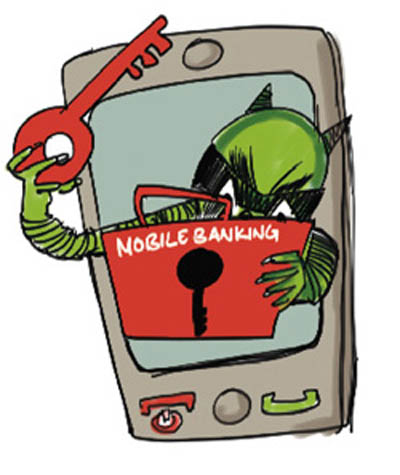
mToken infects smart phones, helps hackers and gags transaction alerts
Here’s a red flag for people who use mobile banking. There could be a bug on your cell phone and you could not even know it. Worse, the bug could penetrate your e-banking codes, and you could end up losing your life’s savings.
A recent instance of a malicious app (phone application) called mToken or fake token malware/botnet has reportedly infected over 530,000 online banking users in the Gulf region.
Researchers told Khaleej Times that two years ago the number was a more manageable 8,400 users, but because the problem has gone unchecked, it has multiplied rapidly. Anyone can fall victim to the malware, including security personnel. More than 27,000 intercepted SMSes were detected between April 2013 and February this year, which puts many smart phone banking customers at risk.
According to security experts, hackers start their exploitation by creating professionally designed fake mobile banking applications identical to official and legitimate copies of well-known Middle East banks, and then use malicious codes to infect mobile devices of banking customers and steal their identity and money.
Mohammed Amin Hasbini, senior security researcher, Global Research and Analysis Team, Middle East, Turkey and Africa, Kaspersky Lab, spoke to Khaleej Times about how this malware works.
“A normal user can’t really identify the malware, it could go by the name bank1.com or bank1secure.com (see box), you have to be careful of phishing emails and of browsing malicious websites.” This is especially applicable to users of android phones.
What the hackers do is steal your username and password, and also intercept the OTP (One-Time-Password) token code and immediately send it to the ‘bad actor’ who uses several types of secured and encrypted notifications. So when usually a bank transaction is complete and you get a text from the bank, this malware basically eats up that text, so you won’t even know if Dh85,000 goes missing from your account one day.
IntelCrawler, a cyber threat intelligence firm from Los Angeles, USA, seems to think that hackers are targeting oil-rich nations.
Amin Hasbini urged users to take necessary precautions and check the authenticity of apps they download. “Youngsters today want to download everything and not pay for anything, but these precautions are worth spending the $10-20 a year on to put yourself less at risk. The problem is convincing people, as awareness about online threats is very low.”


